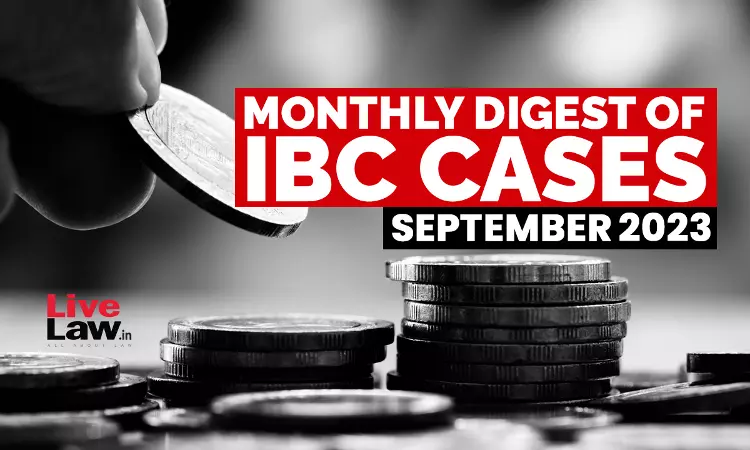Monthly Digest Of IBC Cases: September 2023
Pallavi Mishra
8 Oct 2023 11:30 AM IST
Supreme Court IBC - Liquidator Can't Cancel Valid Auction On Mere Expectation Of Fetching Higher Price; No Unfettered Discretion: Supreme Court Case Title: Eva Agro Feeds Private Limited V. Punjab National Bank & Anr., Civil Appeal No(S). 7906/2021 Citation: 2023 LiveLaw (SC) 753 The Supreme Court Bench comprising Justice B V Nagarathna and Justice Ujjal Bhuyan, has...
Next Story



